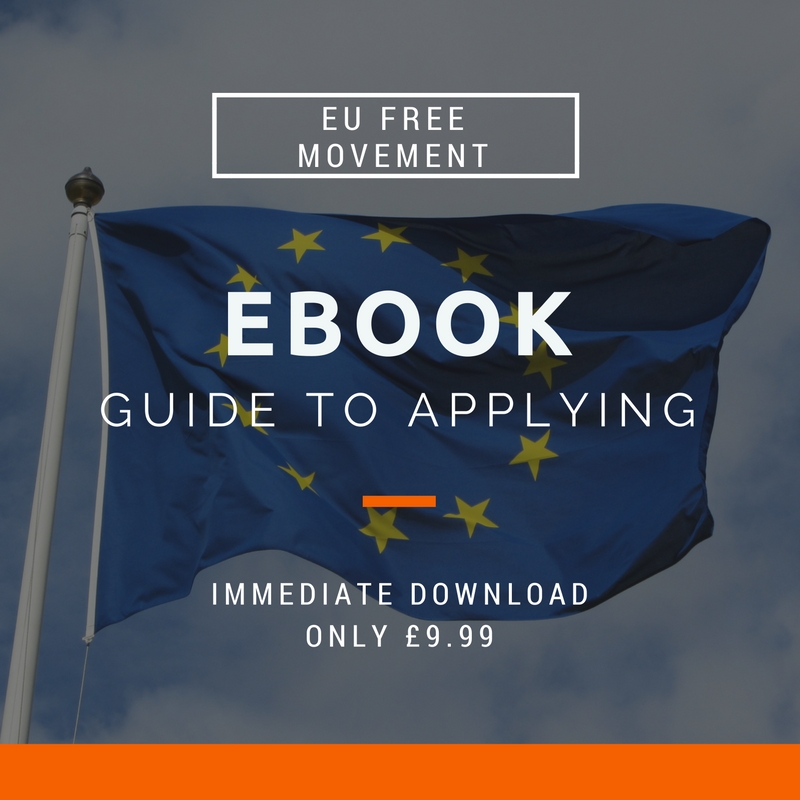- BY Colin Yeo

Brexit Ground Zero: what now?
THANKS FOR READING
Older content is locked

A great deal of time and effort goes into producing the information on Free Movement, become a member of Free Movement to get unlimited access to all articles, and much, much more
TAKE FREE MOVEMENT FURTHER
By becoming a member of Free Movement, you not only support the hard-work that goes into maintaining the website, but get access to premium features;
- Single login for personal use
- FREE downloads of Free Movement ebooks
- Access to all Free Movement blog content
- Access to all our online training materials
- Access to our busy forums
- Downloadable CPD certificates
The people of what is currently the United Kingdom have voted to leave the European Union. What happens now? Here I am going to take a quick look at the immediate consequences for EU nationals living in the UK.
In short, there are no immediate legal consequences that flow directly from the referendum result. The law of the United Kingdom only changes when Parliament enacts a new law through the full Parliamentary process and no such law has been passed. David Cameron, who is stepping down as Prime Minister, has stated that he will not immediately trigger Article 50 of the Treaty on European Union, so there will be no immediate change to free movement laws either.
The longer answer is that we just do not know what will happen in the weeks and months ahead.
If the new Prime Minister does trigger Article 50 then the UK will leave the EU within a two year period and will at the point of leaving cease to be subject to EU law, including free movement law.
There is some optimistic talk of Article 50 not being triggered and instead a further renegotiation taking place and perhaps another referendum. That seems politically very unlikely and it is hard to see how internal Conservative Party politics would allow for such an eventuality. With the pound plummeting, UK government debts to be downgraded, Scotland to demand a further referendum and perhaps with an exodus of big employers to be announced, I guess the politics may change as people realise what they have done to themselves and their country. But I seriously doubt it. It is done.
There was some talk during the campaign of EU nationals automatically retaining “acquired rights” under the Vienna Convention of 1969. That sounds like legal nonsense to me and Professor Steve Peers seems to think so too. Some specific legal provision will need to be made under UK law in my view. If the Government has any decency and any sense, an announcement on this will be made very quickly.
It seems certain that some generous provision will be made for EU nationals currently resident in the UK. There are around 3 million EU nationals living here, all of whom would need a new immigration status. Many of them do not have residence documents because under EU law residence documents are optional for EU nationals and their family members.
My best guess is that free movement laws would be incorporated into UK law. At the very least this would apply to those who are already resident in the UK as at a certain date. The law would take effect automatically without anyone having to make an application as such. On a sliding scale of ever worse possibilities, the existing rules might be tweaked to make it harder to qualify for settlement and easier to deport, family members of EU nationals might not be treated as generously as EU nationals themselves or, worst case, all 3 million EU would suddenly be required to make new applications under UK immigration laws. This last possibility seems extremely unlikely.
The UK may end up staying in the European Economic Area, like Norway, in which case free movement laws would continue to apply as they do today including for future residents from the EU. However, given that immigration seemed to be the decisive issue in the referendum — much to our collective shame — joining the EEA seems like the worse of all options, as it would mean continued free movement rules but also continued payments into the EU and no control over the rules to which the UK was signed up.
In the meantime, many EU national residents will be extremely concerned about their position. Family members of EU nationals may be even more concerned. Many will want to apply for residence documents, for permanent residence and for naturalisation as British. Help and guidance is available.
Firstly, I have written an ebook guide on making EU free movement applications which will be useful if making an application yourself.
Secondly, we have an application checking service available via Free Movement for just £249.99.
Thirdly, I write extensively on EU free movement law issues (see blog name…) and this collection of free previous blog posts may be useful:
Home Office confirms that official EEA series application forms are not mandatory
EU nationals must apply for permanent residence card for British nationality applications
If making an application yourself, you can download the forms for free from the gov.uk website:
- Residence certificate for EEA nationals
- Residence card for family member of EEA citizen
- Permanent residence documents
Recent years have seen the Home Office making EU residence applications more and more complex, entirely unnecessarily. It would be good to see a reversal of that process, with shorter and simpler forms and perhaps with the £65 fee being dropped as well.
The @ukhomeoffice urgently needs to simplify and speed up the process for EU nationals to get residence documents. Too long, too complex.
— Colin Yeo (@ColinYeo1) June 24, 2016
On a personal level, let me end this piece by saying how sorry I am to any EU national readers. I am sorry that our country has put you in this position. The vote is an awful, terrible result not just for the UK but for Europe and I am so desperately sad at the outcome and what it says about us.
Need help?
Here on Free Movement I try to provide information to help people with their own cases. Those interested in making an EU law application may be interested in my ebook guide making an application and the Application Checking Service provided via Free Movement:
SHARE




3 Responses
There are a number of possible scenarios which could frustrate exiting the EU.. A vote of no confidence in the government could be triggered by a coalition of pro europe MPs from both the conservative party and the Labour thus forcing a general election. If in the subsequent election campaign the winning party had pledged to hold negotiations with the EU followed by another referendum on whether to proceed with triggering Article 50 they would have a mandate to follow such a course.
With the economic consequences of Brexit looking ever more severe, such a result is not beyond the realms of possibility.
As it stands a pro Brexit Prime Minister is unlikely to offer a 2nd referendum regardles of the economic consequences.
Politics, if not football, has certainly become somewaht more interesting..